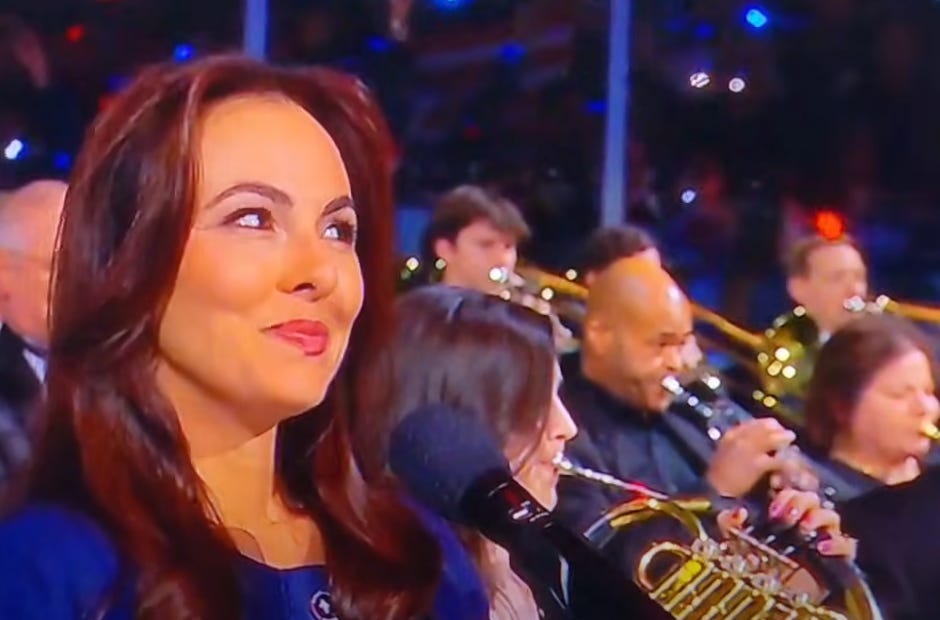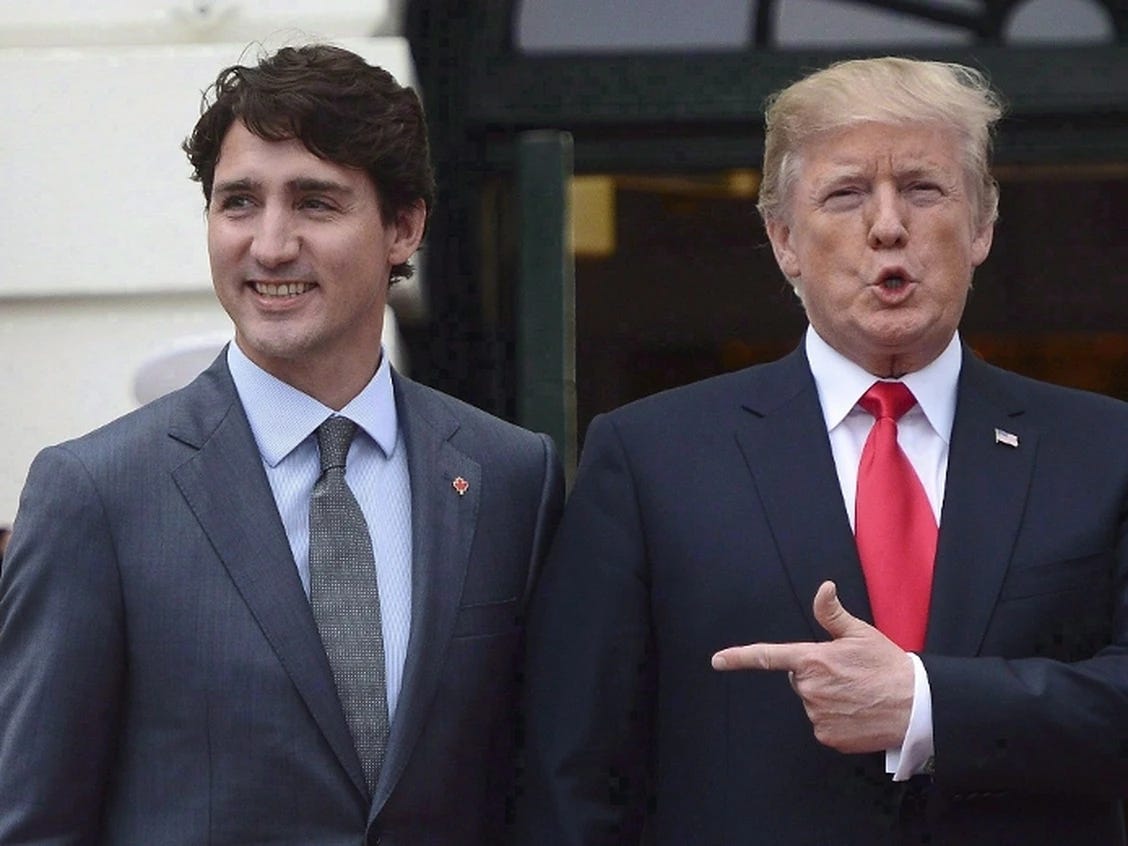
At noon on January 20, 2017, in an old Brooklyn sawdust factory that had been converted to a music hall, an Emmy-winning music director and Broadway conductor named Glen Roven premiered an unusual bit of inaugural counterprogramming.
Roven had thought he would be in Washington that day, directing the entertainment for Hillary Clinton’s inauguration—something he had done for both Bill Clinton and George W. Bush’s opening ceremonies.
That, of course, was not to be.
“Nevertheless, or perhaps because, I still felt I had to contribute,” Roven, who died the following year at age 61, told Limelight magazine. “I’m not rich, nor am I inclined to shout in the streets. But I do write music.”
So he made his art—which is what artists throughout history have done when they have found themselves in places where it feels like they no longer belong.
Roven set two of Hillary Clinton’s best-known speeches to music and enlisted two dozen of the world’s finest opera singers to perform the lines. It was a free show, livestreamed at the precise moment the first Trump era began.
“The music largely conveyed optimism and empowerment instead of failure,” The New York Times wrote of the recital.
Among the artists who Roven said jumped at the chance to participate in The Hillary Speeches was New York mezzo-soprano Isabel Leonard, a three-time Grammy winner with a worldwide following.
Last Thursday, Leonard stepped into a different political fray when she walked onto the ice at Boston’s TD Garden before the start of the NHL’s 4 Nations Face-Off final between the United States and Canada. There, she delivered a head-held-high rendition of “The Star-Spangled Banner” that seemed to carry in its resonance every significant story in American history, from George Washington to George Floyd.
But Leonard added a twist: a long, cheeky pause before the anthem’s final word. She gave the audience a look that let them know she wasn’t just performing. She was talking directly to them. The quick cut of her eyes, the are-you-ready-for-this? smile—they seemed to carry a question that many Americans have asked since the search for counter-programming began on January 20, 2017:
We still know what it means to be brave—right?
♣♣♣
Canada won that contest in overtime, and it was a thrilling hockey game, even if it was just a re-branded NHL all-star event in terms of consequence. But because Trump had spent the previous weeks degrading Canada with name-calling and threats of tariffs and annexation, the event was preloaded with a great deal of chest-thumping—mostly by Americans bearing the last name Tkachuk.
The mashup of pucks and politics even prompted outgoing Canadian Prime Minister Justin Trudeau to post a victory message that sounded more like Dirty Harry than the leader of the country whose friendship the United States routinely takes for granted.
“You can’t take our country—” he wrote, presumably from the bar in the video that accompanied his post, “and you can’t take our game.”
So here we are, North America.
Watching all of this, I couldn’t help but wonder what the late historian John Herd Thompson, a Winnipeg native who headed Duke University’s Canadian Studies program for 23 years before retiring in 2012, would have said about the past few months.
Thompson once quipped that being the foremost expert on Canada in the United States was “sort of like being the best ice hockey player in Zimbabwe.” He could rattle off one-liners about his native country’s relationship with its southern neighbor with a skill worthy of some of Canada’s finest “Saturday Night Live” exports.
But he was also a respected academic who literally wrote the book on our ambivalent alliance. He described Canadians as “the world’s first anti-Americans,” forever wary of the arrogance that led Ohio’s U.S. Rep. William Munger to casually opine in 1870 that “Canada will fall into our lap like a ripe apple.”
Canadians were forever wary that we would march north.
“Nothing I’ve ever done or said has ever been successful in convincing them otherwise,” Thompson said at a seminar I attended in 2003.
A collective, quiet guardedness is baked into the Canadian national consciousness the way loud protest and individual rebellion is baked into ours.
That protest and rebellion once helped us break away from tyranny, as any American grade-schooler can tell you (for now). But it’s also a wily resource that, when placed in the hands of a malignant narcissist, runs around the playground threatening and poking the other kids’ insecurities in an effort to hide its own.
It’s a wily resource that requires responsible direction to alight into goodness and bravery.
Neither of our countries is perfect, of course. As Thompson wrote:
Both the United States and Canada … are “imagined nations,” invented in a remarkably short span of history. Both countries are made up of immigrants who seized what was, in a sense, a common western frontier from Native Americans … [and] neither country treated native peoples in a manner that can be cause for pride in the twenty-first century.
But how we each respond to Trumpism 2.0 matters. And there is a push-and-pull between our sensibilities. Canadians, who will go to the polls later this year, have been unhappy enough with Trudeau and his Liberal party to throw the majority of their support behind the Conservative party candidate, Pierre Poilievre.
But where there are MAGA supporters in Canada, there is also admiration for Poilievre, who has also trafficked in anti-wokeness, degrading nicknames, and personal attacks. That linkage, coupled with Trump’s tariff threats and insults, has had an impact on polling in recent weeks, with at least one outlet showing the Liberal party pulling ahead of Poilievre and the Conservatives yesterday for the first time since 2021.
Directly or indirectly, we are in this mess together.
“My sense is that Canada and the United States actually started out being pretty much the same place,” Thompson said 22 years ago. “But in the process of making themselves into a country, everybody has to define themselves against an other.”
So the question is, four years from now, who will our respective “others” be?
♣♣♣
In the most basic sense, what we’re talking about is how we define belonging, both for ourselves and for the groups we fall into, whether by birth or by choice. And maybe that’s why I found myself listening for notes of harmony in a solo anthem performance last Thursday.
I know that a slow and painful unbelonging—watching the family you thought you knew make choices you never believed possible—prompts a kind of ambiguous grief.
Watching your country do the same is not much different.
Nevertheless, or perhaps because, you love that country still. Because you’re part of it. It runs through you. And you want to believe in its goodness. You have not forgotten what that looks like. It looks like U.S. Attorneys refusing to roll over for a lawless administration. It feels like a federal judge requiring government lawyers to defend their bigotry.
I have not forgotten what it sounds like, either. I don’t know, of course, what was really going through Isabel Leonard’s head when she paused to look at the crowd in Boston last Thursday, in the very city that birthed the United States’ original rebellion against tyranny.
It’s possible she was hoping American winger Brady Tkachuk would once again drop gloves and start wailing on a guy in a maple leaf jersey immediately after the puck dropped.
But if great art is open to interpretation, if it always gives us what we need, then this is what I need to believe about Leonard’s pause before the word brave:
That our true rebellious spirit, the one that rejected a king, is still alive and unwilling to give up on its fundamental purpose. That when we sing the last words of that anthem over the next four years, we’ll find a way to really mean them. ♣



